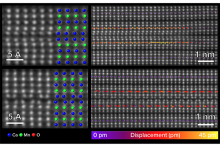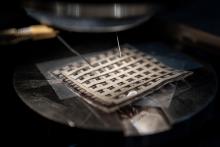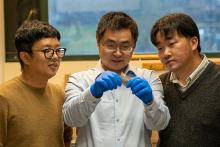A team of researchers have observed and reported for the first time the unique microstructure of a novel ferroelectric material, enabling the development of lead-free piezoelectric materials for electronics, sensors, and energy storage that are safer for human use.
Three materials science and engineering doctoral students — representing six in the College of Earth and Mineral Sciences — are among the 21 new National Science Foundation (NSF) Graduate Research Fellowship Program (GRFP) recipients for the 2022-23 academic year.
Penn State alumna Imani Murray is 14 countries into her travel journey, and as she continues to grow her brand, she’s not stopping there.
Five faculty in Penn State’s Department of Materials Science and Engineering (MatSE) are members of research teams selected for two recently funded Energy Frontier Research Centers.
Penn State has named Corning Inc., one of the world's leading innovators in materials science, as its 2022 Corporate Partner of the Year.
Jean Paul Allain, Huck Chair Professor and head of the Ken and Mary Alice Lindquist Department of Nuclear Engineering in the College of Engineering at Penn State, was appointed to serve on the Fusion Energy Science Advisory Committee.
As the first Millennium Scholar in the College of Earth and Mineral Science, Ana De La Fuente Duran embraced the opportunities of the program, which aims to help ambitious students onto the track toward advanced degrees in STEM fields.
David Flores says he works off the common wisdom that you’re made up from the average of the five people closest to you.
Soft, elastic semiconductors and circuits could advance wearable medical devices and other emerging technologies, but the high-performance electronics are difficult and expensive to manufacture.











